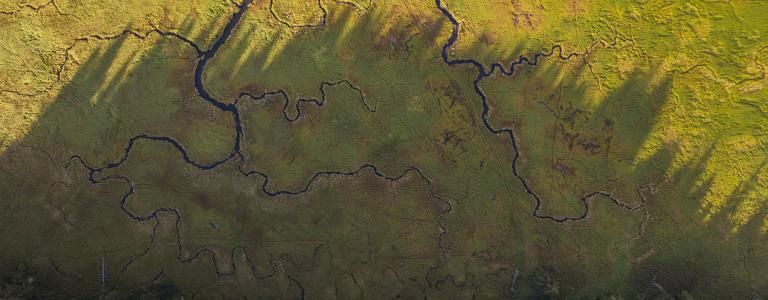New Initiative to Boost Capacity for Nature-Based Climate Solutions
JUNE 7, WINNIPEG—The converging crises of biodiversity loss and climate change are rapidly intensifying the vulnerabilities of communities and ecosystems around the world. Launching today, the Nature for Climate Adaptation Initiative (NCAI) has one crucial goal: to help enable nature-based climate action that protects both livelihoods and biodiversity in the most vulnerable parts of the world.
Offering a wide range of resources, expert guidance, and accessible learning opportunities, this new project by the International Institute for Sustainable Development (IISD), with support from Global Affairs Canada, provides civil society organizations with the tools they need to enhance the implementation of nature-based climate solutions (NBCS) for adaptation that protect people of all genders and social groups. The NCAI will also feature an e-learning course on Ecosystem-based Adaptation—developed in partnership with Deutsche Gesellschaft für Internationale Zusammenarbeit (GIZ) and the International Union for Conservation of Nature (IUCN)—which will be launching in the coming months.
“With careful implementation tailored to local contexts, nature-based climate solutions are highly effective and contribute to addressing societal challenges while enhancing biodiversity and ecosystem resilience,” says Veronica Lo, Senior Policy Advisor with IISD’s Resilience Program and lead for the NCAI. “Strengthening the knowledge and capacity of civil society is not only critical for scaling up the implementation of NBCS, it also helps mainstream Ecosystem-based Adaptation across different disciplines and sectors.”
The NCAI uses three pillars to ground its work. It is:
- Socially inclusive: Integrating principles of good governance and equity as well as considerations of Indigenous and local or Traditional Knowledge in NBCS implementation.
- Biodiversity positive: Scaling up the implementation of NBCS to enhance biodiversity and ecosystem resilience.
- Gender responsive: Ensuring that NBCS actively promote and enable gender equality.
“Women and girls in many parts of the world depend extensively on natural resources for their livelihoods and well-being. Nature-based climate solutions reflect this relationship, providing better protection and increased resilience in the face of climate change while also leveraging their unique insights and leadership in planning for and using these solutions,” says Harjit S. Sajjan, Minister of International Development and Minister responsible for the Pacific Economic Development Agency of Canada.
“Canada’s support for the Nature for Climate Adaptation Initiative is one more way that we are helping to promote social inclusion and gender equality in climate action.”
******
Media contact:
Alanna Evans, Communications Officer, IISD
aevans@iisd.ca
About IISD
The International Institute for Sustainable Development (IISD) is an award-winning independent think tank working to accelerate solutions for a stable climate, sustainable resource management, and fair economies. Our work inspires better decisions and sparks meaningful action to help people and the planet thrive. We shine a light on what can be achieved when governments, businesses, non-profits, and communities come together. IISD’s staff of more than 250 experts come from across the globe and from many disciplines. With offices in Winnipeg, Geneva, Ottawa, and Toronto, our work affects lives in nearly 100 countries.
You might also be interested in
How Can We Work With Nature to Tackle Drought and Desertification?
Drought is one of the most devastating and pervasive challenges exacerbated by climate change. However, we can work to reduce its effects through nature-based solutions for land restoration and climate-smart agriculture.
IISD Annual Report 2023–2024
While IISD's reputation as a convenor, a trusted thought leader, and a go-to source on key issues within the sustainable development field is stronger than ever, the work happening outside the spotlight is just as valuable.
For Nature-Based Solutions to Be Effective, We Need to Work with Indigenous Peoples and Local Communities
Nature-based solutions have been praised as a promising approach to tackling the twin crises of climate change and biodiversity loss. But some Indigenous Peoples and local communities are questioning the legitimacy of the concept and what it symbolizes. It is time to listen to what they have to say.
December 2024 | Carbon Minefields Oil and Gas Exploration Monitor
In November 2024, 23 oil and gas exploration licences were awarded across five countries, with Russia granting the licences that account for the largest portion of embodied emissions.
